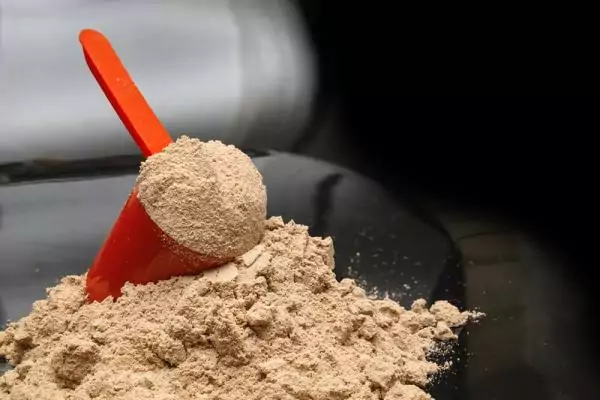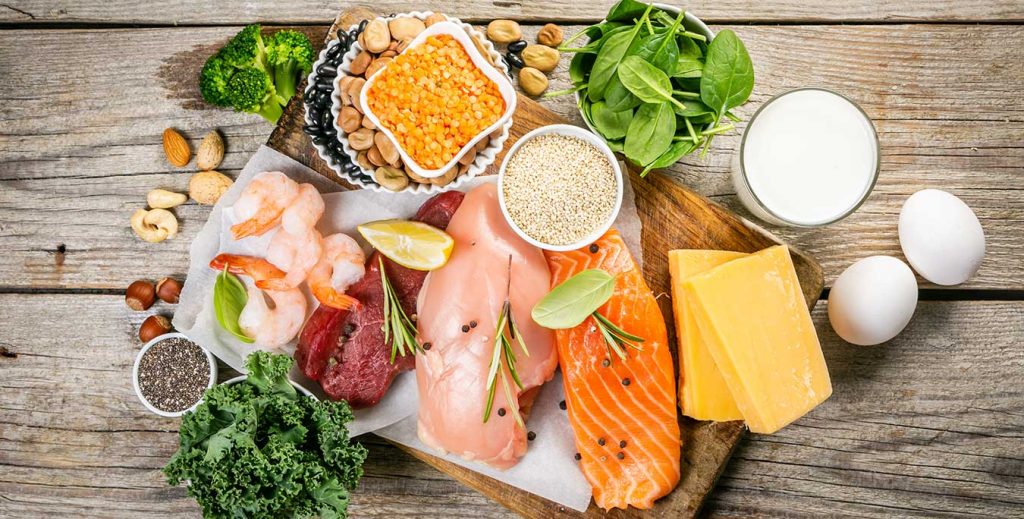If It Doesn’t Challenge You – It Doesn’t Change You!
Most people think that Whey Protein is just the typical amino acids but actually contains a lot of other essential molecules that help repair your body after an intense workout. Here’s a breakdown of what you should know about whey protein, so even if you could fulfil all your protein requirements from natural sources whey could lead to mass gain.

Nowadays, Fitness is a trend and profession, and when it comes to building muscle, nothing beats Whey. The more people are getting involved in this regime, more brands of Whey Proteins are being introduced in the market. But the question is – What is Whey Protein and does it really imperative to consume in order to gain mass or muscles? Or we have other organic sources that can be a help in this case? Being a consumer, you have the right to know what is going inside your body. So, here is the breakdown of what you should know about Whey protein before simply kickstart with it.
Quick Introduction: What Is Whey Protein?
Whey protein is regarded as a supplement staple, used by bodybuilders, fitness enthusiasts, and athletes to help with muscle recovery, lean muscle growth, and general health. It’s the best protein for stimulating muscle gains before and after workouts.

Where Does It Come From?
These supplements fall under a group of milk proteins that are isolated from Whey, which is a left-over product of milk after it is coagulated during the cheese-making process. Most people think that Whey Protein is just the typical amino acids but actually contains a lot of other essential molecules that help repair your body after an intense workout. For example, a 600ml of whey protein usually contains about 8% bovine serum albumin, 25% alpha-lactalbumin, 65% beta-lactoglobulin, and a small number of immunoglobulins, lactose, and fat, which is a great number of supplements to supply enough fuel to your body.

Why Is It Essential?
Whey proteins are absolutely essential for gym regulars, as they need all the 20 amino acids in their system at all times and the best way to replenish it is by consuming protein. It gets absorbed into the bloodstream really fast and replenishes the energy that has been sapped away during the rigorous workouts and provides the body with much-needed proteins. Although it plays a vital role in muscle growth and repair, one should not kill natural proteins in his/her diet.

Benefits Of Whey protein
- Aids in Weight Loss and Maintenance
- Acts as an Appetite Suppressant
- Assists in Diabetes Management
- Prevents Against Allergies
- Boosts the Immune System
Side Effects of Whey Protein
Though the consumption of Whey Protein is generally considered safe, there are still some potential side effects associated with high doses. It includes fatigue, cramps and bloating, headaches, increased bowel movements, reduced appetite, kidney stone formation, undue pressure on your liver, loss of mineral bone density, and constipation due to high lactose content.

Are Natural Proteins Enough?
There is enough organic source of proteins available, veg ones like legumes, dry fruits, soya, tofu, cheese, and non-veg ones like chicken, lean red meat, fish, eggs, etc. Now, why should one take whey protein if he can fulfil his protein requirements from natural sources? The reason is that protein from natural sources is inadequate for gym regulars, bodybuilders, and sports enthusiasts and even if they could fulfil all the protein requirements from natural sources the number of fats and carbohydrate they consume could lead to weight gain and hamper their fitness goal.

Recommended Organic Source of Proteins For Vegans
- Guava (1 Cup): About 4.21g of Protein
- Asparagus (1 Cup Raw): About 2.95g of Protein
- Cooked Quinoa (½ Cup): About 4g of Protein
- Dried Chia Seeds (2 tbsp): About 3g of Protein
- Wakame Seaweed (1 Cup Raw): About 2.42g of Protein
- Pasta (1 Cup Cooked): About 10g of Protein
- Kale (1 cup Raw): About 2.87g of Protein
- Regular Quick Oats (½ c Dry or 1 Cup Cooked): About 5.33g of Protein
- Baked Potato (1 large): About 6.28g of Protein
- Cooked Buckwheat (1 Cup Groats): About 5.68g of Protein
- Wheat Germ (2 Tbsp): About 3.33g of Protein
- Cooked Chickpeas (½ Cup): About 5.90g of Protein
- Pistachios (1 Ounce): About 6g of Protein
Summary
- Whey protein is absorbed faster by the body compared to other protein.
- It contains high levels of the amino acid Leucine.
- It helps increase muscle growth.
- Whey protein can help with weight loss.
- It has been shown to reduce blood pressure, blood sugar levels and symptoms of depression and stress.
- Whey protein boosts your immune system.
- If you’re lactose intolerant you should choose an isolated protein.
I hope I’ve been able to contribute more facts about whey protein and that you will find the better source that suits you the best!
FAQ’s
Q. How Much Protein Should I Consume?
A. Depending on your age, gender, weight and activity level, your protein requirement varies.
Q. When do I take it?
A. After a workout is the most obvious time to consume whey protein powder because that’s when your muscles need it most
Q. Whey Protein Before Bed – Is It a Good Idea?
A. Although consuming calories before bed isn’t always a good idea, eating whey protein before bed does have some advantages. Whey is a high-quality protein containing all the essential amino acids your body requires daily. However, if having whey before bed causes you to exceed your daily caloric needs, you may experience unwanted weight gain.

